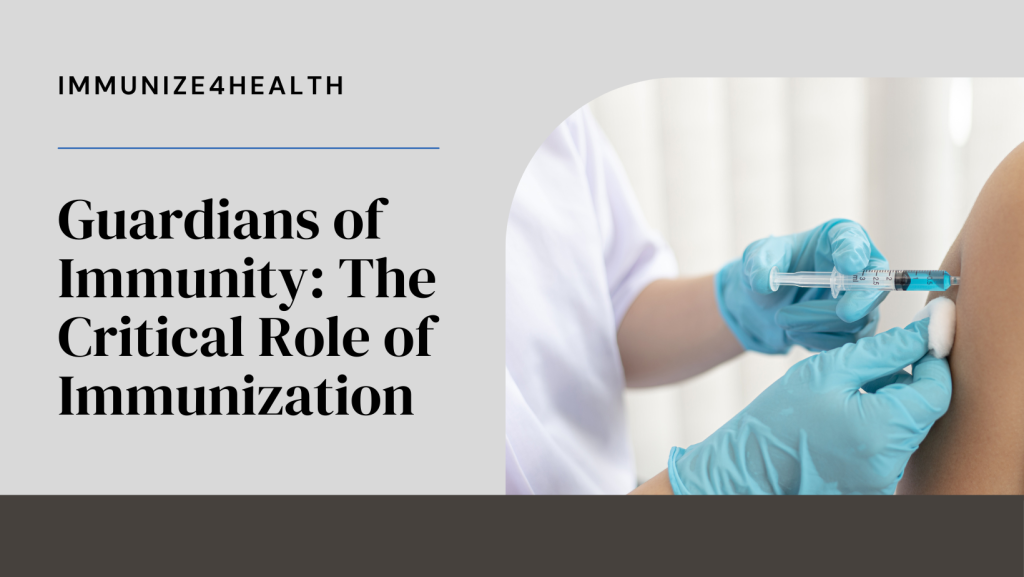Immunization stands as one of the most effective tools in safeguarding children’s health and preventing the spread of infectious diseases. By stimulating the body’s immune system to produce antibodies against specific pathogens, vaccines offer protection against a range of potentially deadly illnesses. Here’s a closer look at the critical role of immunization in safeguarding children’s health:
- Prevention of Infectious Diseases: Immunization plays a crucial role in preventing the spread of infectious diseases that pose significant threats to children’s health. Vaccines protect against a wide array of illnesses, including measles, mumps, rubella, polio, pertussis, influenza, and more. By vaccinating children against these diseases, immunization programs have successfully reduced morbidity and mortality rates worldwide.
- Herd Immunity: Immunization not only protects vaccinated individuals but also contributes to herd immunity, which benefits the entire community. When a significant portion of the population is immunized against a disease, it becomes more challenging for the pathogen to spread, protecting vulnerable individuals who cannot be vaccinated due to medical reasons or age, such as newborns and individuals with compromised immune systems.
- Eradication of Diseases: Immunization has played a pivotal role in the eradication of diseases such as smallpox and the near-elimination of polio. Through widespread vaccination campaigns, these diseases have been brought under control or eliminated from certain regions, saving countless lives and reducing the burden on healthcare systems.
- Protection Throughout Life: Vaccination provides protection against diseases that can have lifelong consequences, such as measles, which can lead to complications like pneumonia, encephalitis, and even death. By vaccinating children according to recommended schedules, parents and caregivers can ensure long-term protection against vaccine-preventable illnesses.
- Safe and Effective: Vaccines undergo rigorous testing and evaluation to ensure their safety and efficacy. Extensive clinical trials and post-marketing surveillance ensure that vaccines meet stringent safety standards before they are approved for use. The benefits of vaccination far outweigh the risks, making immunization one of the safest and most cost-effective public health interventions available.
In conclusion, immunization stands as a cornerstone of children’s health, offering protection against a myriad of infectious diseases and contributing to overall well-being. By ensuring that children receive recommended vaccinations according to schedule, parents, caregivers, and healthcare providers can play a vital role in safeguarding the health of future generations and promoting community immunity. Immunization remains a powerful tool in the ongoing fight against infectious diseases, underscoring its critical importance in public health efforts worldwide.




